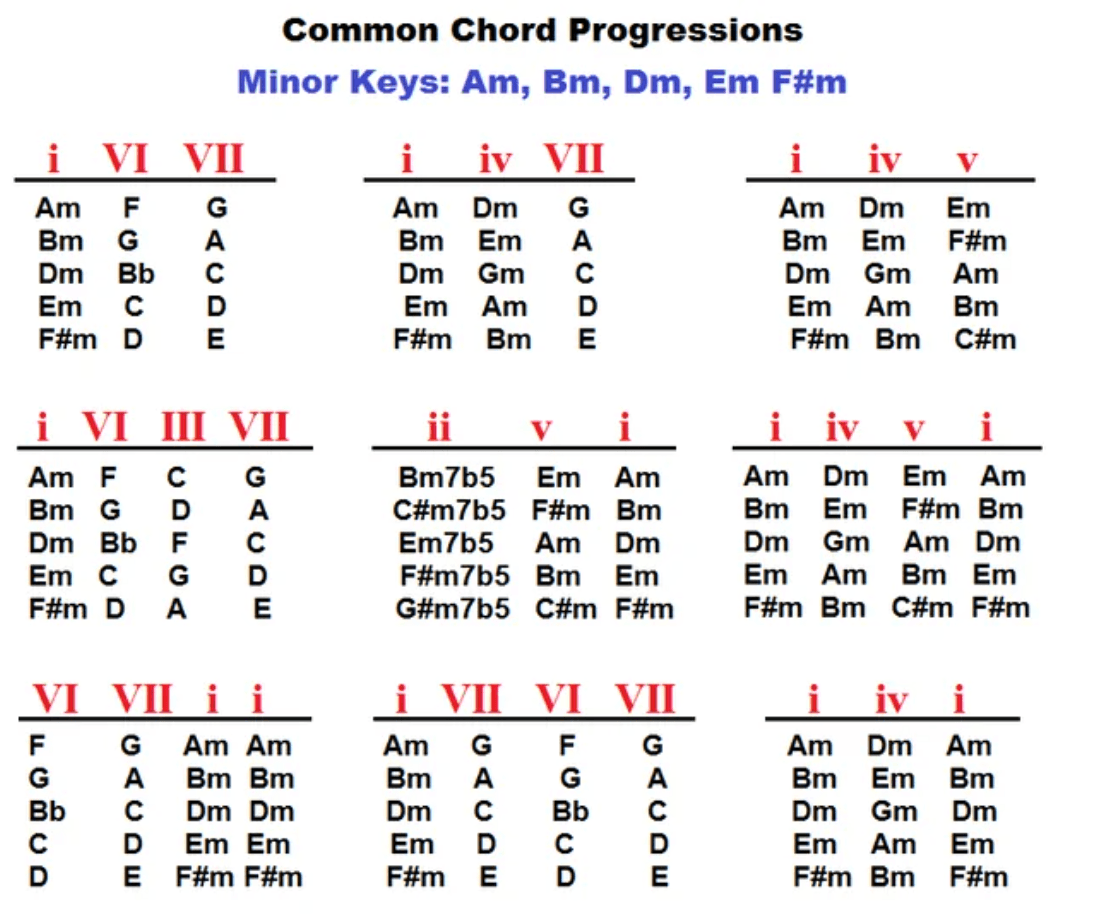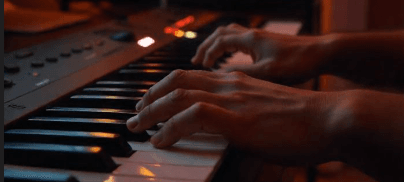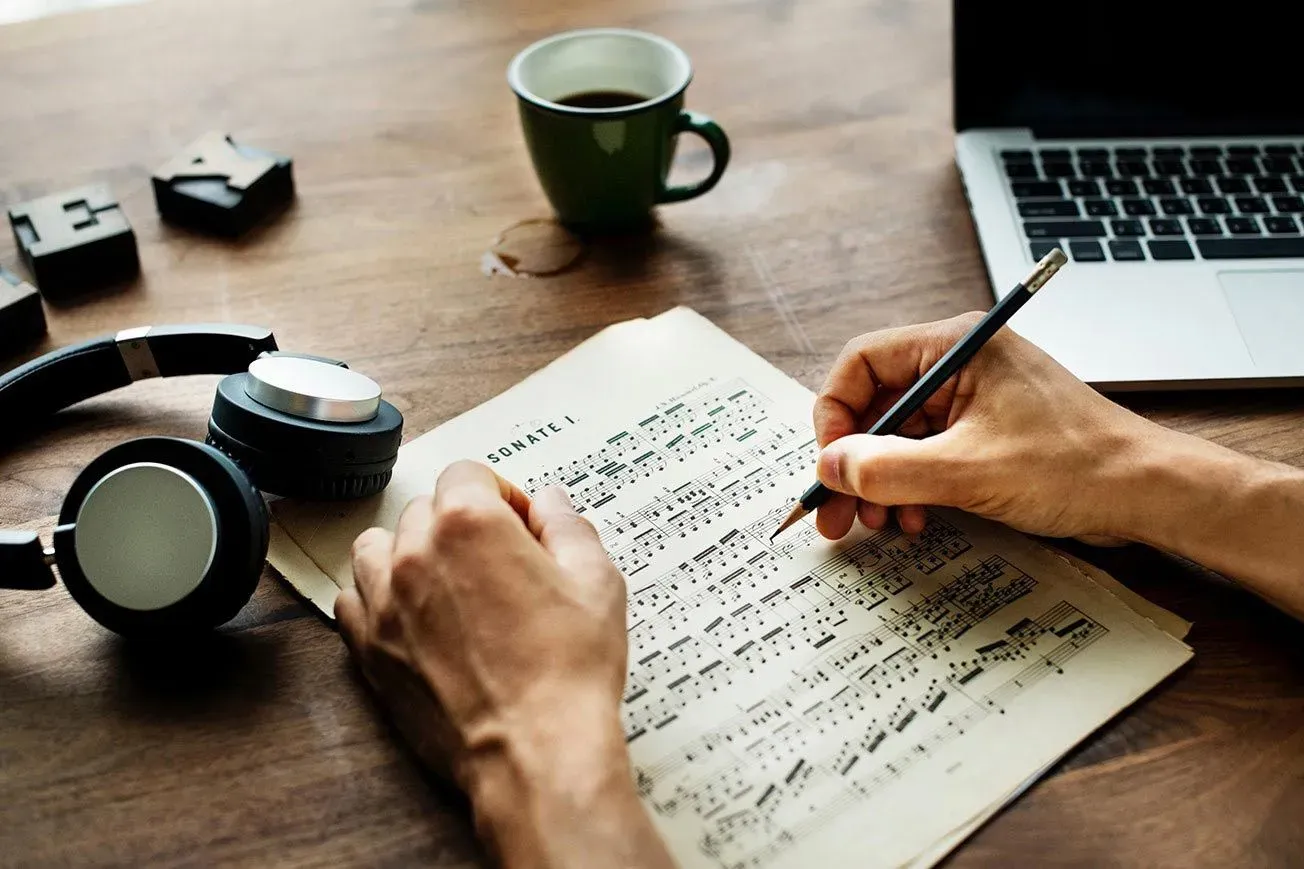The future of music creation is here! AI music production tools have revolutionized the way musicians compose, produce, and mix their tracks. This rapidly evolving technology offers us a range of benefits that enhance creativity to the next level. Let's explore how artificial intelligence is shaping and redefining the future of music.
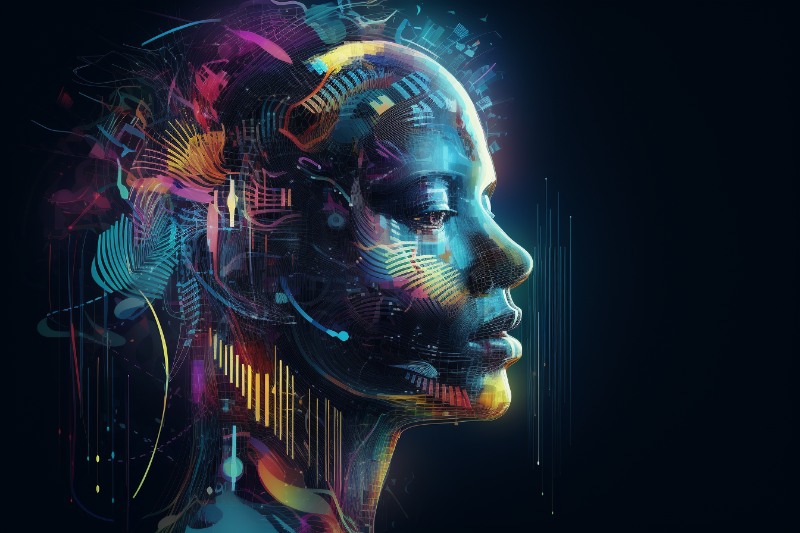
Benefits and Advantages of AI Music Production Tools
AI music production tools offer a range of benefits and advantages for producers and musicians alike. With AIVA, these tools provide enhanced creativity and inspiration by generating unique musical ideas that can be used as starting points for compositions. Additionally, they streamline the production process, saving time and effort through automated tasks such as chord progression generation or melody arrangement. Furthermore, AI music production tools ensure high-quality production with advanced algorithms that optimize sound mixing and mastering techniques. Ultimately, these tools promote accessibility for all musicians by providing a user-friendly interface that enables anyone to create professional-sounding music regardless of their technical expertise
Enhanced creativity and inspiration
AI-generated musical ideas are revolutionizing the creative process for music producers. With advanced algorithms and machine learning, AI tools like AIVA can generate unique melodies, harmonies, and rhythms that inspire new compositions. In real-time, these tools provide composers with instant suggestions and assistance, allowing them to explore different genres and styles effortlessly. The possibilities for enhanced creativity and inspiration are limitless with AI music production tools at your fingertips.
Efficiency and time-saving
Automated arrangement suggestions, powered by AI technology, revolutionize music production by offering quick and efficient solutions for producers. These tools analyze the composition to provide intelligent recommendations for optimal structure and flow. Streamlined workflow is now achievable with AI-powered tools, allowing producers to seamlessly navigate through various stages of music production. With features like auto-syncing and smart editing capabilities, valuable time is saved in the creative process. Additionally, quick generation of backing tracks or accompaniments using AI systems like AIVA significantly expedites the production cycle.
- Automated arrangement suggestions enhance composition structure
- Streamlined workflow with AI-powered tools saves time
- Quick generation of backing tracks or accompaniments aids efficiency
Accessibility for all musicians
Assistance is available for beginners in composing or arranging music through AI-powered tools like AIVA, providing guidance and support throughout the creative process. Adaptive interfaces within these tools accommodate users of all skill levels, ensuring a user-friendly experience that can be tailored to individual needs. Inclusivity is promoted by enabling musicians to express their creativity without extensive technical expertise, allowing them to focus on their artistic vision rather than complex production techniques.
Popular AI Music Production Tools
Amper Music, Jukedeck, and Empress are leading the way in AI music production tools. With Amper Music's intuitive interface, users can quickly generate high-quality compositions tailored to their specific needs. Jukedeck offers a vast library of pre-made tracks and allows for customization options to match any project's requirements. Meanwhile, Empress uses algorithms to compose original pieces that evoke emotion and captivate listeners. These innovative tools are revolutionizing the music industry by providing accessible and efficient solutions for creating professional-grade music effortlessly.
Amper Music
Amper Music revolutionizes music creation with its AI-generated compositions. Harnessing the power of artificial intelligence, Amper's algorithm produces original and high-quality music that caters to various genres and moods. By employing customizable music templates, users can easily tailor these compositions to fit their unique projects, saving time and effort in the creative process. Additionally, Amper enables real-time collaboration with its AI composer, facilitating a seamless workflow where ideas can be shared and refined instantly for a truly dynamic musical experience.
Jukedeck
Jukedeck offers AI-powered composition and production tools that revolutionize the way music is created. With Jukedeck, you can instantly generate original tunes in various genres, allowing you to explore a vast range of musical possibilities. The platform also makes it incredibly easy to customize tempo, mood, and duration, ensuring that each piece perfectly captures the desired tone.
Key Features:
- AI-powered composition and production tools
- Instantly create original tunes in various genres
- Easily customize tempo, mood, and duration
Empress
Empress is revolutionizing music composition by offering a seamless experience for creating unique melodies and harmonies effortlessly. With Empress' advanced AI algorithms, musicians can explore endless creative possibilities as the tool generates intelligent suggestions to enhance their music. Unlocking new horizons in music production, Empress empowers artists with cutting-edge technology that pushes the boundaries of musical innovation.
AI in Music Composition
Machine learning algorithms have revolutionized the process of melody creation in music composition. By analyzing vast amounts of musical data, AI can generate unique and innovative melodies that push the boundaries of creativity. This technology offers musicians a valuable tool for inspiration and exploration in their artistic endeavors.
Automatic harmonization is yet another exciting application of AI in music composition. With advanced algorithms, AI can analyze melodic lines or chord progressions to automatically harmonize them, creating rich and complex arrangements effortlessly. Musicians can now experiment with different harmonic possibilities more efficiently than ever before.
Overall, the integration of AI into music production tools holds immense potential for the future of music creation. As these technologies continue to evolve and improve, they will undoubtedly shape how musicians approach their craft by providing endless possibilities for innovation and expression.
Machine learning algorithms in melody creation
Neural networks have revolutionized melody creation by enabling the generation of unique and captivating tunes. These algorithms use pattern recognition and analysis to identify musical patterns in existing compositions, allowing them to compose melodies that follow similar structures. In addition, deep learning techniques have been employed to generate truly original melodies that push the boundaries of creativity. With these advancements in machine learning, musicians now have powerful tools at their disposal for crafting unforgettable music.
AI-assisted songwriting
Lyric suggestions based on contextual analysis: AI-assisted songwriting revolutionizes the creative process by providing lyric suggestions tailored to the context of a song. Through advanced machine learning algorithms, the AI analyzes the theme and mood of a composition, offering relevant and inspiring word choices that align with the artist's vision.
Enhancement of creativity through AI-generated ideas: With AI music production tools, artists can unleash their full creative potential. By generating innovative ideas and melodies, AI assists in pushing artistic boundaries, enabling musicians to explore new genres and experiment with unique sounds they may not have considered before.
Automatic generation of chord progressions and arrangements: Gone are the days of struggling to find the perfect chords or arranging musical elements harmoniously. Utilizing artificial intelligence, musicians can now rely on automated chord progression generation and arrangement tools that effortlessly create cohesive compositions tailored to their desired style. This streamlines workflow processes while allowing artists more time for actual creation rather than tedious technical work.
Automatic harmonization
Intelligent algorithms seamlessly harmonize melodies with chords, enhancing the richness and depth of musical compositions. These advanced AI tools analyze melodic inputs and generate 'smart' accompaniments that perfectly complement the melody, providing a professional touch to music production. Additionally, these algorithms allow for 'on-the-fly' harmonic adjustments, creating seamless compositions that flow effortlessly from one section to another. With automatic harmonization capabilities, musicians can unlock new levels of creativity in their music creation process.
AI in Music Production and Mixing
Automated mixing and mastering
AI-powered equalization and audio processing, intelligent compression, and dynamic range control are revolutionizing the world of music production. With advancements in technology, producers now have access to automated mixing and mastering tools that can create professional-level sound with minimal effort. These AI-driven tools analyze audio signals in real-time, making precise adjustments to enhance the overall quality of the mix.
Automated vocal tuning and pitch correction are another game-changing feature offered by AI music production tools. Gone are the days of spending hours manually editing vocals for perfect pitch; now, software algorithms can automatically detect off-key notes and correct them seamlessly. This not only saves time but also ensures that every vocal performance sounds polished and professional.
- AI-powered equalization and audio processing
- Intelligent compression and dynamic range control
- Automated vocal tuning and pitch correction
Real-time performance enhancement
Live performances have been revolutionized by the introduction of AI music production tools. With live auto-tuning and vocal harmonization, artists can now deliver flawless performances that captivate their audience. Dynamic tempo adjustment ensures seamless transitions between songs, enhancing the overall live experience. Additionally, real-time audio effects customization based on audience response allows musicians to tailor their sound in real-time, creating an immersive and interactive atmosphere for concert-goers. These advancements in real-time performance enhancement are elevating the art of live music to new heights.
AI Music Production Tools: The Future of Music Creation
Dynamic song arrangement
Automatic generation of unique song structures is revolutionizing the music industry. AI-powered tools analyze patterns and trends in existing songs to create fresh arrangements that captivate listeners. These dynamic compositions break free from traditional molds, offering artists endless possibilities for creativity.
In addition to generating unique structures, "smart" arrangement suggestions based on genre analysis guide musicians towards creating cohesive and engaging pieces. By understanding the characteristics of different genres, AI can provide tailored recommendations for musical sections such as verses, choruses, and bridges. This intuitive assistance streamlines the creative process while maintaining artistic integrity.
Interactive AI tools offer a playground for musicians to experiment with different musical sections. With real-time feedback and adjustments, artists can seamlessly explore variations in tempo, instrumentation, and transitions. This interactive approach empowers creators to fine-tune their compositions before committing them to record or live performance.
The future of music creation lies in harnessing the power of AI music production tools like dynamic song arrangement software. Through automatic generation of unique structures, smart genre-based suggestions for arrangement composition ideas are obtained while providing an interactive platform for experimentation with various musical sections—all contributing to enhanced creativity within the industry.
AI and Collaboration in Music
With the advancement of AI technology, music creation has taken a new turn. Virtual bandmates and ensemble playing are becoming increasingly popular, allowing musicians to collaborate with artificially intelligent counterparts. This enables seamless integration of different instruments and styles, pushing the boundaries of music production.
AI-powered music collaboration platforms have also emerged as powerful tools for musicians. These platforms utilize machine learning algorithms to analyze musical data and generate suggestions or even complete compositions. By harnessing the power of AI, artists can now benefit from innovative ideas and explore new creative possibilities in their musical collaborations.
Virtual bandmates and ensemble playing
Realistic virtual instrument simulations, intelligent accompaniment generation, and interactive AI-driven improvisation are revolutionizing the way musicians collaborate and play together. With advancements in AI music production tools, virtual bandmates can now join forces with human musicians to create seamless ensemble performances. This opens up new possibilities for remote collaborations and expands the creativity of musical compositions.
- Realistic virtual instrument simulations offer high-quality digital renditions of traditional instruments.
- Intelligent accompaniment generation generates dynamic backing tracks that adapt to the style and mood of the performance.
- Interactive AI-driven improvisation enables real-time collaboration between human musicians and their virtual counterparts.
These innovative technologies enhance musical expression by providing versatile companionship in creative endeavors, bridging distances between artists, and pushing boundaries in music creation.
AI-powered music collaboration platforms
AI-powered music collaboration platforms have revolutionized the way musicians work together. With cloud-based project management and version control, collaborators can easily share and edit their work in real-time, ensuring seamless workflow and organization. Additionally, smart audio processing and mixing assistance provide valuable tools for enhancing sound quality and achieving professional-level production.
- Cloud-based project management and version control
- Real-time collaborative composition tools
- Smart audio processing and mixing assistance
Challenges and Limitations of AI Music Production Tools
1. Limited human touch: Despite their capabilities, AI music production tools often lack the emotional depth and personal touch that only humans can bring to a musical composition. While they can mimic certain styles or genres, they struggle to capture the subtle nuances and raw emotions that make music truly unique.
2. Potential loss of individuality: As more artists turn to AI music production tools, there is a risk of an over saturation of similar-sounding tracks. This could lead to a loss of individuality in music creation, where originality takes a backseat to algorithm-generated melodies and harmonies.
3. Ethical concerns and copyright issues: The rise of AI-created music raises questions about artistic ownership and intellectual property rights. Determining who holds responsibility for compositions generated by algorithms can be challenging, potentially leading to legal disputes between artists, tech companies, and creators.
While AI music production tools offer exciting possibilities in terms of efficiency and innovation, it's important to consider these challenges as we navigate the future landscape of music creation.
Lack of human touch and emotional connection
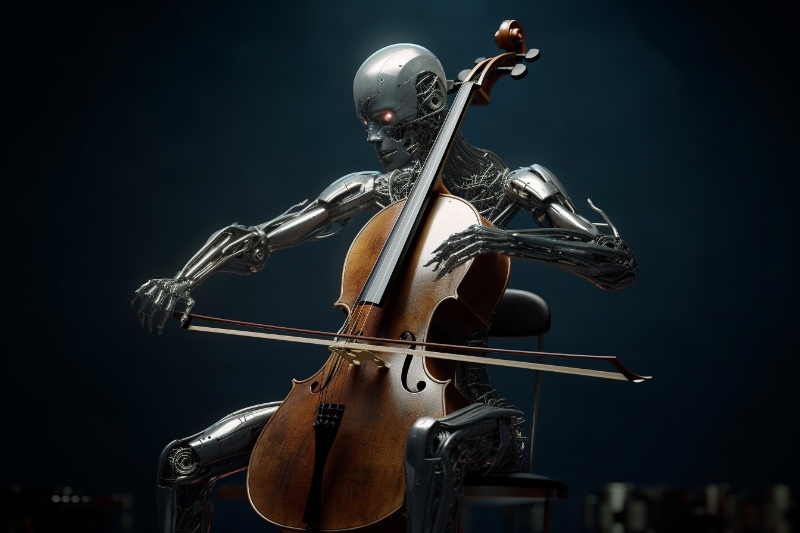
In the realm of AI music production tools, one significant drawback is the lack of human touch and emotional connection. These technologies struggle to express genuine emotions, resulting in music that feels detached and devoid of feeling. Moreover, they often lack personal interpretation, failing to capture the nuances and subtleties that make art truly meaningful. As a result, there is an absence of unique artistic expression in AI-generated music compositions. This limitation diminishes the overall depth and authenticity of these creations, leaving listeners craving for the richness that only human musicians can provide.
Potential loss of individuality and uniqueness
Homogenization of music production has become a concerning consequence of AI music production tools. With the ability to generate music based on popular trends and algorithms, these tools often prioritize commercial success over artistic innovation. As a result, the industry is flooded with cookie-cutter tracks that lack originality and fail to capture the essence of individual artists.
The use of AI in music creation has led to diminished creativity and originality among musicians. Rather than exploring unique sounds and pushing boundaries, many artists rely on pre-programmed templates and formulas provided by these tools. This reliance stifles their creative expression, limiting their ability to experiment with unconventional ideas or take risks that may define their distinct style.
Furthermore, the widespread adoption of AI in music production has contributed to reduced diversity in musical styles. As algorithms analyze consumer preferences and replicate successful patterns, genres are becoming increasingly homogenous. This erosion of diverse musical landscapes limits listeners' exposure to new experiences while hindering emerging artists who dare to defy mainstream conventions.
Remember: Paragraphs should be indented 0cm.
Target Audience: Music enthusiasts interested in understanding the impact of AI technology on creativity within the industry.
Primary Keyword: AI music production tools
Title: Potential Losses Caused by Artificial Intelligence in Music Creation
Ethical concerns and copyright issues
Unauthorized use of copyrighted material by AI algorithms presents a significant ethical concern. With the ability to analyze and emulate existing music, AI algorithms can inadvertently infringe upon copyright laws when generating new compositions. Difficulty in attributing credit to human creators further complicates this issue, as it becomes challenging to determine who should be acknowledged and compensated for their work. The legal implications surrounding ownership rights are also raised, as the question arises regarding whether AI-generated music should be considered the intellectual property of its algorithm creator or those whose work was used as inspiration.
- Unauthorized use of copyrighted material
- Difficulty in attributing credit
- Legal implications surrounding ownership rights
The Future of AI Music Production Tools
The future of AI music production tools promises continually advancements and growth.
Furthermore, the integration of AI music production tools with virtual reality (VR) and augmented reality (AR) opens up new avenues for immersive music creation experiences. Musicians can step into virtual environments or manipulate holographic interfaces to compose their tracks in unique ways. This fusion of technology enhances the creative process and allows for a deeper connection between artists and their musical creations.
In addition to simplifying the composition process for professionals, AI music production tools empower aspiring musicians by lowering barriers to entry. With intuitive interfaces and smart suggestions tailored to individual skill levels, these tools make it easier than ever for beginners to start creating their own music. This democratization of music creation fosters creativity on a broader scale while expanding the possibilities within the industry.
As we look ahead towards the future of AI music production tools, exciting prospects await both seasoned musicians seeking advanced capabilities as well as newcomers looking for accessible platforms that fuel their passion for creating exceptional soundscapes. By harnessing cutting-edge technology like VR/AR integration alongside powerful algorithms driven by machine learning techniques, these innovative tools have transformed traditional approaches to composition while broadening opportunities throughout the realm of musical expression.
Continued advancements in AI technology
Machine learning algorithms are revolutionizing the way music is generated, providing musicians with better tools for creativity. These advanced algorithms analyze vast amounts of musical data to generate unique and high-quality compositions, pushing the boundaries of what is possible in music creation.
Real-time processing capabilities have made significant strides in AI technology, allowing for seamless integration between musicians and their digital tools. This real-time processing enables instant feedback and adjustment, enhancing the creative workflow and bringing a new level of efficiency to music production.
With improved natural language processing capabilities, AI systems now offer intuitive ways for musicians to create music. By understanding human language inputs more accurately, these systems can interpret ideas and translate them into musical compositions effortlessly. This breakthrough simplifies the composition process and opens up new avenues of expression for artists.
Integration with virtual reality and augmented reality
Immersive virtual reality experiences now come alive with AI-generated soundscapes, transporting users to entirely new sonic dimensions. By leveraging the power of artificial intelligence, these VR environments offer a multi-sensory experience that immerses users in meticulously crafted audio landscapes.
Augmented reality interfaces are revolutionizing music production by providing interactive tools that can be manipulated in real-time. With AR technologies, musicians can manipulate virtual instruments or control parameters through gestures and movements, fostering a more intuitive and expressive creative process. This seamless integration between the physical world and digital music production opens up endless possibilities for musicians to explore new sonic territories.
Virtual band collaborations have been facilitated by AI technologies which enable musicians from different locations around the globe to come together virtually and create music as if they were in the same room.
From immersive VR soundscapes to intuitive AR interfaces for live performance and virtual collaborations enabled by AI technologies, these advancements are expanding possibilities within the realm of music production like never before.
Empowering musicians and expanding possibilities
Automated composition tools revolutionize the creative process, unleashing a new wave of musical possibilities. These AI-driven tools assist musicians in generating innovative melodies, harmonies, and arrangements effortlessly. By augmenting human creativity with intelligent algorithms, artists are empowered to explore uncharted territories and push the boundaries of music creation.
Follow the future of music with Empress. Check out our blog to learn how you can effectively use these AI music tools.
